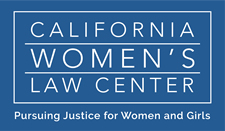This is National Women’s Health Week, an opportunity to recognize the ongoing need to make the health of women and girls a priority.
Now more than ever, we must acknowledge the deep inequalities that have been illuminated by the coronavirus. Around the country, Black and Latinx people are contracting and dying of COVID-19 at a disproportionately high rate. This fact reflects long-standing structural inequalities and institutional biases that exist in the U.S.
Millions of women rely on publicly funded programs for their health care, yet some elected officials are using the COVID-19 crisis as an opportunity to undermine women’s access to reproductive health services (including abortion) which will disproportionately impact women of color and low-income families. When ideologically driven laws force providers to close, women will need to travel long distances to get the care they need. Not having close, accessible care can be a devastating barrier for people with limited transportation options, a job with inflexible hours, or a lack of money to pay for childcare.
An accurate census count is critical to ensuring that communities get the resources they need, including access to health care services. This is especially important for people who have been historically undercounted and systematically disadvantaged.
We invite you to read our latest Op-Ed in Ms. Magazine, highlighting what’s at stake for women and girls in the 2020 census.
